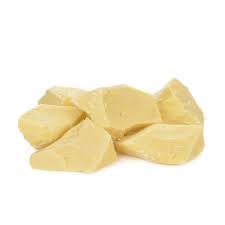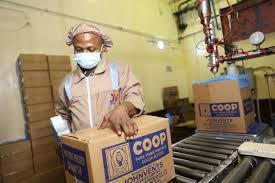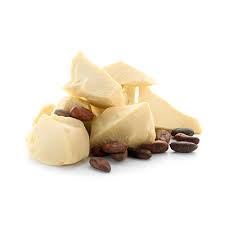![]()
If you’ve landed on this article page, you’re probably searching for a
good business idea—an idea that’s light on the pocket but heavy on
returns, promising both a fulfilling journey and potential profit.
|
How to start the production of Cocoa Butter in Nigeria
Cocoa butter production is an important aspect of the cocoa
value chain in Nigeria Cocoa butter is a natural vegetable fat
extracted from cocoa beans, primarily used in the food,
pharmaceutical, and cosmetic industries. Nigeria and Africa are
home to a significant portion of the world’s cocoa production,
making them a potential hub for cocoa butter production. Cocoa
butter production business in Nigeria and Africa has the
potential to boost the economy, create job opportunities, and
increase the export value of the region.
Additionally, cocoa butter is used in the production of various
cosmetic products, including skin lotions, creams, and soaps.
The African market for cosmetic and personal care products is
rapidly growing, with an estimated worth of over $13 billion in
2020.
Business Opportunities In The Cocoa Butter Production Business
In Nigeria
Skincare Industry: Cocoa butter is commonly used in skincare
products due to its moisturizing and antioxidant properties.
Chocolate Industry: Cocoa butter is one of the main ingredients
in chocolate production, and its demand in the chocolate
industry is expected to grow in the coming years.
Food Industry: Cocoa butter is also used in the production of
various food products such as baked goods, spreads, and
confectionery.
Cosmetics Industry: Cocoa butter is commonly used in cosmetics
and personal care products such as soaps, lotions, and lip
balms.
Candle Making: Cocoa butter can also be used in candle making
due to its ability to hold fragrance and its smooth texture.
Aromatherapy: Cocoa butter is used in aromatherapy as a carrier
oil for essential oils.
Textile Industry: Cocoa butter is used in the textile industry
as a softener and water repellent for fabrics.
Soap Making: Cocoa butter is commonly used in soap making due to
its moisturizing properties and ability to harden soap.
Agriculture: Cocoa butter production creates opportunities for
smallholder farmers to earn income from their crops and
participate in global trade.
Job Creation: The cocoa butter production industry provides jobs
for people involved in farming, harvesting, processing, and
marketing of cocoa.
Export: Cocoa butter production in Nigeria and Africa provides
an opportunity for the export of cocoa products to other
countries, generating foreign exchange.
Local Market: Cocoa butter production provides a market for
cocoa farmers in Nigeria and Africa to sell their products
locally, reducing dependence on imports.
Value Addition: Cocoa butter production adds value to cocoa
beans, leading to higher prices and increased income for
farmers.
Investment Opportunities: The cocoa butter production industry
in Nigeria and Africa provides investment opportunities for
investors looking to finance cocoa processing plants or invest
in cocoa farming.
There are different types of cocoa butter production businesses
in Nigeria and Africa, which include:
Industrial Cocoa Butter Production: This involves large-scale
production of cocoa butter using advanced machinery to extract
the fat from cocoa beans.
Artisanal Cocoa Butter Production: This involves small-scale
production of cocoa butter by hand or using simple machines.
Home-based Cocoa Butter Production: This involves making cocoa
butter in small quantities at home for personal use or sale in
local markets.
Organic Cocoa Butter Production: This involves the use of
organic cocoa beans and production methods that do not involve
the use of chemicals or synthetic additives.
Fair Trade Cocoa Butter Production: This involves the use of
cocoa beans produced by farmers who are paid fair prices for
their crop and have good working conditions.
Specialty Cocoa Butter Production: This involves the production
of cocoa butter for use in specific applications, such as
cosmetics, pharmaceuticals, or high-end chocolate products.
Value-added Cocoa Butter Production: This involves the
production of cocoa butter products, such as lotions, soaps, and
candles, for sale to consumers.
Types Of Cocoa Butter In Nigeria and Africa
Cocoa butter is the main ingredient in the production of
chocolate, cosmetics, and pharmaceuticals. There are three main
types of cocoa butter used in the production of cocoa butter
products, and they are:
Natural cocoa butter: This is the purest form of cocoa butter,
and it is extracted from the cocoa beans using a hydraulic
press. Natural cocoa butter has a strong chocolate aroma and is
usually used in the production of high-quality chocolates.
Deodorized cocoa butter: This type of cocoa butter is produced
by heating the natural cocoa butter to remove the chocolate
aroma and flavor. Deodorized cocoa butter is used in the
production of cosmetics and pharmaceuticals because it is
odorless.
Fractionated cocoa butter: This type of cocoa butter is produced
by separating the solid and liquid components of natural cocoa
butter. Fractionated cocoa butter is used in the production of
cosmetics and soaps because it has a smooth texture and does not
become rancid easily.
Alkalized cocoa butter: This type of cocoa butter undergoes an
alkalization process to reduce its acidity level. It has a
milder flavor and color than natural cocoa butter.
High-fat cocoa butter: This type of cocoa butter has a higher
percentage of fat content than other types of cocoa butter, and
it is commonly used in the production of high-end chocolates.
Low-fat cocoa butter: This type of cocoa butter has a lower
percentage of fat content and is commonly used in the production
of cocoa powder.
The demand for cocoa butter is generally high throughout the
year, but there are specific periods when the demand peaks. For
example, the demand for cocoa butter increases during festive
seasons such as Christmas and Easter when there is an increased
demand for chocolate and other cocoa-based products.
Additionally, the demand for cocoa butter is also high during
the summer months when ice cream sales are at their highest.
Equipment: Purchase cocoa bean roasting, grinding, and pressing
equipment, and other essential equipment such as packaging and
labeling machines.
Target Market For The Cocoa Butter Production Business In
Nigeria
Confectionery Companies: These are companies that produce
chocolates, candies, and other sweet treats that often use cocoa
butter as an ingredient.
Cosmetics Companies: Many cosmetics companies use cocoa butter
in their products due to its moisturizing and antioxidant
properties.
Pharmaceutical Companies: Cocoa butter is used as an ingredient
in some medications and supplements.
Food and Beverage Manufacturers: Cocoa butter is used in the
production of some foods and beverages such as dairy products
and baked goods.
Health and Wellness Companies: Cocoa butter is known to have
many health benefits, which makes it a desirable ingredient in
products marketed towards health-conscious consumers.
Soap and Candle Makers: Cocoa butter is a popular ingredient in
handmade soaps and candles due to its moisturizing and
skin-nourishing properties.
Farmers’ Markets and Local Stores: Small businesses that sell
locally sourced and handmade products are often interested in
purchasing cocoa butter.
Online Retailers: With the rise of e-commerce, online retailers
are becoming an increasingly important market for cocoa butter
products.
Supermarkets and Grocery Stores: Cocoa butter can be found in
many food products sold in supermarkets and grocery stores.
Specialty Stores: Specialty stores that cater to health and
wellness, natural beauty, and artisanal foods often carry cocoa
butter products.
Health Food Stores: Health food stores and supplement shops are
a great target market for cocoa butter products due to its many
health benefits.
Gourmet Stores: High-end gourmet stores often carry artisanal
chocolate and other cocoa-based products that use high-quality
cocoa butter.
Restaurants and Bakeries: Restaurants and bakeries that produce
high-end desserts and baked goods may be interested in
purchasing cocoa butter for their recipes.
Hotels and Resorts: Many luxury hotels and resorts offer their
guests high-quality chocolates and other confections that use
cocoa butter.
Export Markets: Nigeria and Africa have a growing cocoa butter
export market, with demand coming from countries such as the
United States, Europe, and Asia. Exporters can target these
markets to sell their cocoa butter products.
The Cocoa Butter Production Business in Nigeria and Africa has
the potential to contribute significantly to economic growth,
employment opportunities, and health benefits. With the
increasing global demand for natural products and cosmetics,
there is a vast market for cocoa butter and its related
products. However, starting and operating a successful cocoa
butter business requires proper planning, research, and
commitment. The production process involves careful selection of
high-quality cocoa beans, proper processing techniques, and
adequate packaging and storage.
The processing and packaging of Cocoa Butter involve the
following steps:
Fermentation: The harvested cocoa beans are fermented to remove
the mucilage and develop the flavor precursors.
Drying: The fermented cocoa beans are dried in the sun or using
mechanical dryers.
Roasting: The dried cocoa beans are roasted to develop the
flavor and aroma.
Grinding: The roasted cocoa beans are ground into a paste called
cocoa liquor.
Separation: The cocoa liquor is separated into cocoa solids and
cocoa butter using a hydraulic press.
Refining: The cocoa butter is refined to remove impurities and
improve the color and texture.
Packaging: The refined cocoa butter is packaged in air-tight
containers to prevent oxidation and ensure freshness.
It is important to maintain proper hygiene during the processing
and packaging of cocoa butter to prevent contamination and
ensure product safety. The use of food-grade equipment and
packaging materials is also essential.
Get our Practical Training guide on Cocoa Butter Production..
The Cocoa Butter business plan provides a detailed roadmap for
entrepreneurs seeking to dive into the Cocoa Butter
industry in Nigeria. The plan offers an in-depth analysis
of essential commercial elements, equipping you with actionable
insights to build a robust foundation for your venture. It
meticulously explores the nuances of your business idea and
considers the local market dynamics, competitive landscape, and
the driving forces behind market growth.
|







